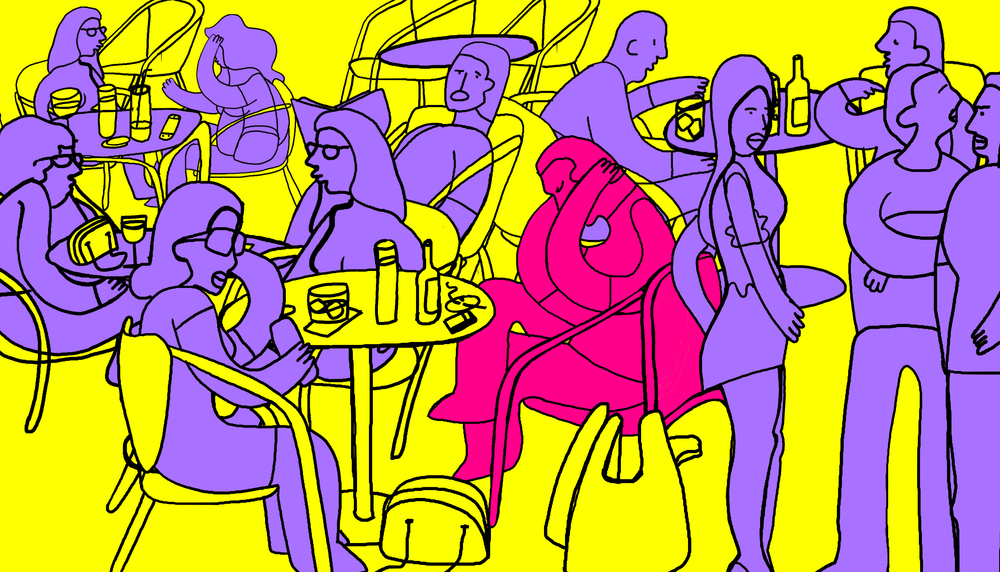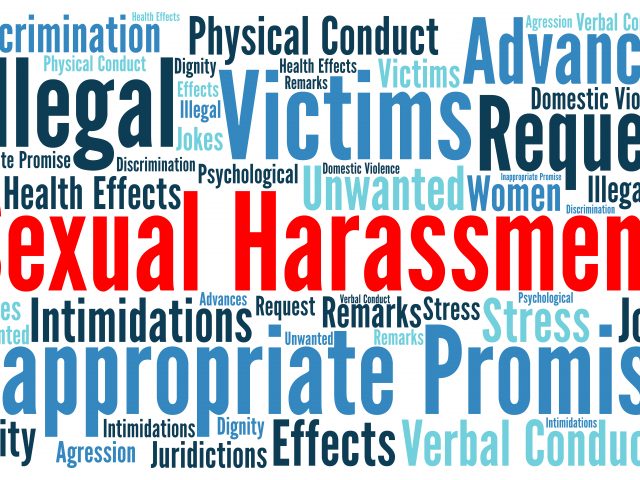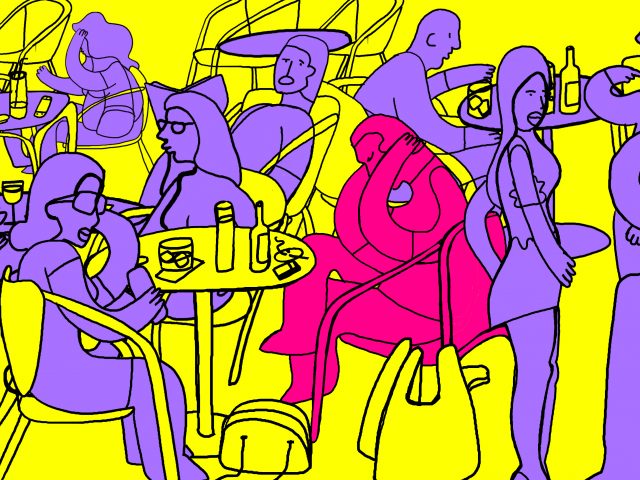New report: 1,194 university students have experienced unwanted sexual behavior

(Illustration: Shutterstock)
“It’s about time we do something about it,” says Rie Snekkerup, Head of the Program Administration at CBS, about a new report on unwanted sexual behavior towards students at Danish universities. Universities have been blind to the problem, argues the President of CBS Students. CBS is putting the finishing touches to its own report.
Offensive verbal comments of a sexual nature and unwanted physical touching. These are among the most common unwanted sexual behaviors that students at the eight Danish universities experience, according to a new report from Universities Denmark and The National Union of Danish Students.
In May 2018, 150,000 students from Denmark’s eight universities received an online questionnaire and were asked to complete it if they had experienced sexual harassment during their studies. A total of 1,194 students responded, and specified a total of 1,969 incidents.
“Unfortunately, I’m not surprised by the figures. They are in line with what we have seen in the media during the past year,” says Jeppe Ask Tofteskov, President of CBS Students.
According to the report, 50 percent of the respondents have been sexually offended by a fellow student, and 11 percent of the offenders were a first-year counselor and/or student tutor.
Rie Snekkerup, Head of the Program Administration at CBS, says in a statement on CBS’ intranet:
“This survey describes shocking experiences at Danish universities. We are taking this very seriously. I am deeply affected by the stories I have read, and it is completely unacceptable that this kind of behavior is taking place at all,” she says and goes into more detail by phone:
“Unfortunately, I’m not surprised either. Universities are reflecting the surrounding society and sexual harassment obviously also happens here, and it’s about time that we do something about it.”
The report from Universities Denmark and The National Union of Danish Students doesn’t say anything specific about the individual universities; however, CBS is currently in the final stages of completing its own internal report on the issue.
But why haven’t the individual universities, including CBS, done an internal survey on these issues among students earlier?
“I think the universities have been blind to the fact that they have a responsibility in this too. It’s not been viewed at as a ‘university-problem.’ It was the same when we started to discuss the students’ stress levels, and the universities realized that they were responsible for creating a healthy study environment too,” says Jeppe Ask Tofteskov.
The challenges of the first year
For 41 percent of the respondents, the incidents took place during the first year of their Bachelor’s, while 13 percent of the respondents said the incident took place at graduate level.
“This shows that it is crucial to get a good start to one’s studies and build up a healthy culture among the students. And that we talk openly about how we want to engage with one another,” says Jeppe Ask Tofteskov.
Rie Snekkerup points out that the students on their first year are more immature and insecure about themselves and their surroundings, which makes them more vulnerable, and then there are more parties especially during semester start.
“The report indicates that social events and alcohol increases the risk of incidents,” she says.
During study start this year, CBS launched a new campaign with the exact purpose of starting a dialogue among students about inappropriate behavior. However, more needs to be done, admits Rie Snekkerup.
“We will continue to work on improving intro week. For example, by making a boot camp for the tutors and addressing transgressing behavior and being more stringent when it comes to approving activities during intro week,” she says and continues:
“Furthermore, we want to include questions about offensive behavior in the study environment survey. Something we haven’t done before. And lastly, we want to be better at pointing out where students can get help.”
A twisted balance of power
Although, Jeppe Ask Tofteskov is not surprised by the figures, something stood out in the report.
For 12 percent of the respondents, unwanted sexual behavior involved university employees. An anonymous respondent (a student assistant) describes several incidents with a colleague (a professor) whose offensive sexual comments made the respondent feel uncomfortable due to the balance of power between the two. In two cases, other colleagues interfered; however, they didn’t say anything to the professor, but told the respondent to back out.
This was new to Jeppe Ask Tofteskov.
“The general conversation has mainly been about unwanted sexual behavior between students. The incidents between colleagues, of which one of them is a student, is not something we have discussed much,” he says.
What strikes him about the case described in the report is that no one seems to react towards the professor’s behavior. And this needs to change.
“If we witness incidents that are inappropriate, we have to react. We need to take care of each other in this way. It’s a culture we have to change,” he says.
Rie Snekkerup says it is very critical when sexual harassment comes with a power relation.
“If you are a tutor or a professor you simply have to be much more aware of what you say or do because the students are dependent upon you.,” she says.
Therefore, she is working on initiatives in relation to ‘Enjoy Campus Life’ campaign that ran during semester start, aimed at students and staff. The purpose will be to draw attention to the issues of offensive behavior also when power relations are at stake.
“You can introduce rules; but this is also a cultural problem, we need to be open and discuss when and where for instance comments are ok or not. And we need to create a space where it is ok to say that comment was out of line,” says Rie Snekkerup and continues:
“CBS is a community and we all have a responsibility to create a good campus life which is inclusive and free of offensive behavior”




































































































































Comments